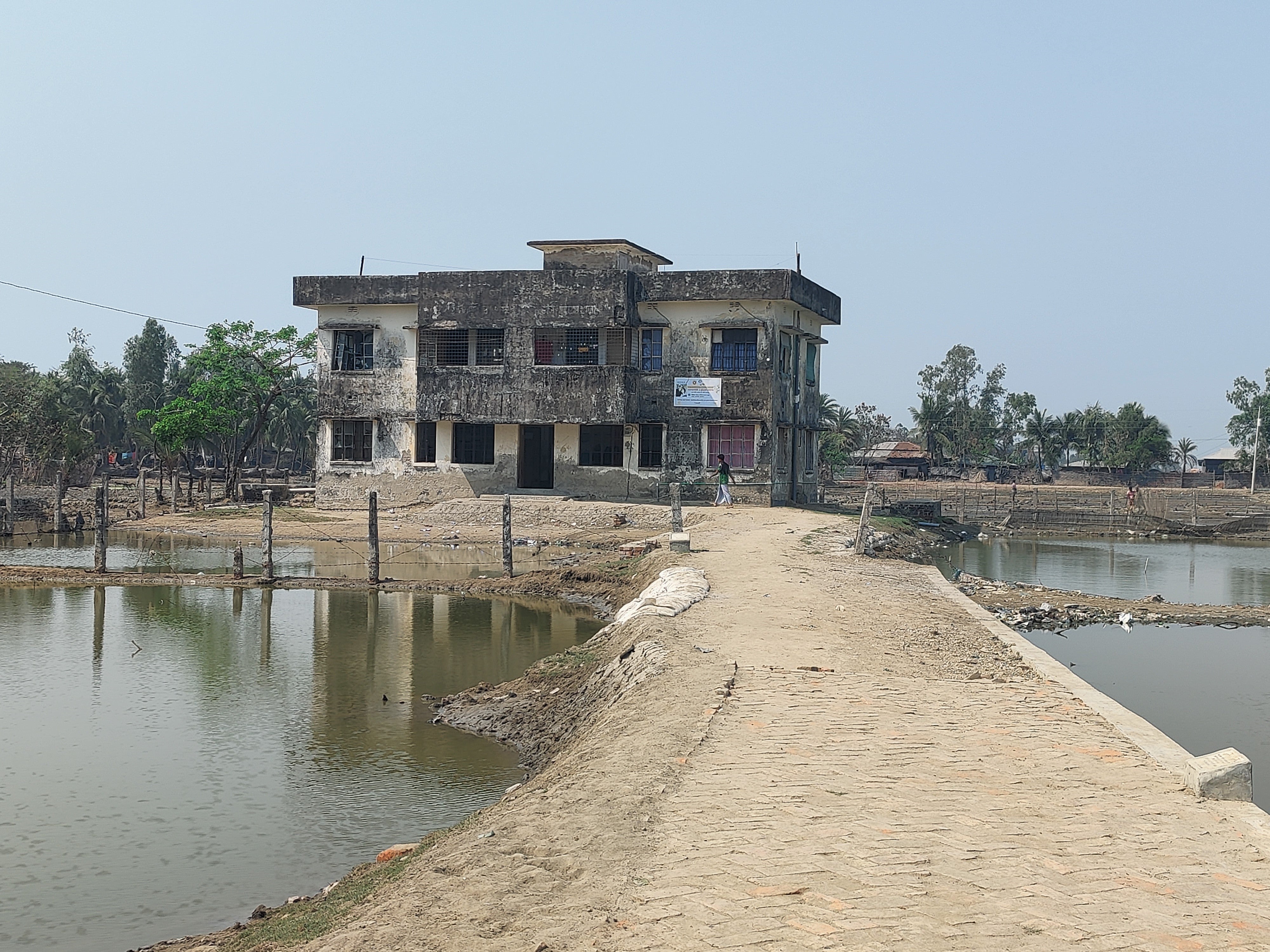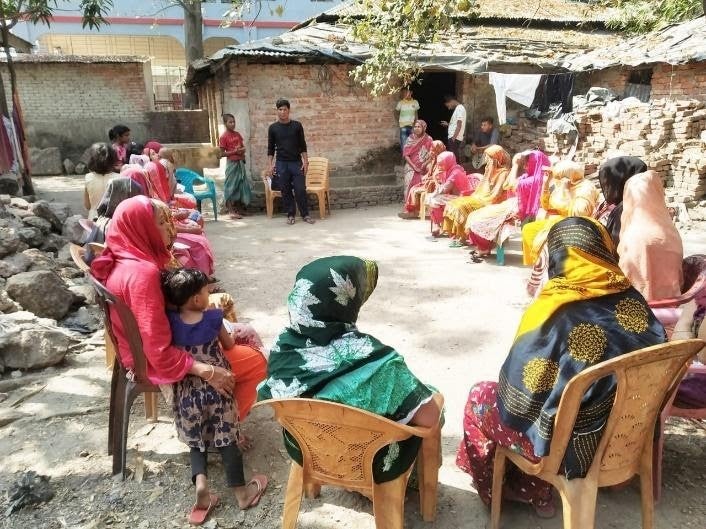“I have seen lots of violence against women here. What often happens is that a girl and a boy get intimate and a girl gets pregnant. If the boy’s family accepts the girl after the child is born, they claim high dowry for which women are often brutally beaten in this area. Sometimes I feel that girls here are born to be survivors of gender-based violence.”
Muntaha Fatema is a 28-year old case worker for the “Strengthening Sexual and Reproductive Health and Rights and Gender-Based Violence Prevention Services in Host Communities in Cox’s Bazar” project in Suturia Bazar, Dhalghata Union. The project, which is being implemented by CARE Bangladesh with UNFPA’s technical support and funding by the Government of Canada, aims to strengthen women’s protection from gender-based violence through improved services and awareness raising efforts in 18 targeted unions in Cox’s Bazar District.
Muntaha is one of the 18 case workers that have been sent to work in the Union Health and Family Welfare Centres, as well as Community Clinics around the district. Due to frequent flooding in the area, Muntaha’s health facility in Dhalghata Union is the hardest to reach facility of the entire project, which has resulted in people in the area having a poor understanding of gender-based violence and what should be done when it occurs.

Due to frequent flooding, road infrastructure in Dhalghata Union is mostly in poor condition.
“A change in the people’s mind-set is happening, but very slowly. While women used to be unawareof the support they should receive, now they at least understand where they need to go if they face any violence. They clearly want safety and security,” Muntaha says.
Frequent events, meetings, trainings and court-yard sessions held at the community level have played a huge part in stimulating this gradual shift in attitudes. In addition, the project has established a Women-Led Community Centre in the union, where women and adolescent girls can gather, share life stories and seek support from each other in a safe environment. A huge part has also been played by the project’s field facilitators and community volunteers who have actively engaged with local government authorities, religious leaders as well as men and boys in the communities to raise awareness on the harmful effects of gender-based violence for the entire community and not just its women and girls.

Court-yard session in Dhalgata Union
These results have not been gained easily, however. Initially, it was difficult to mobilize women and girls to participate in the project activities as local customs have typically restricted women’s movement outside the house. Many women felt pressured by their families to not engage in the awareness raising sessions. Through patient dialogue with the community members, the project staff has now been able to convince much of the local people of the benefits of such activities.
As an outsider in the community, Muntaha also had to grapple with the traditional mindset of the community in her personal life:
“As a female living alone in this remote area, I used to be questioned all the time when I was walking outside. I was constantly asked how my husband could let me work here, which was uncomfortable. But if I feel unsafe as a case worker of an International NGO, can you imagine how rural women must feel?”, she says.
By understanding the value of her work and passionately believing in her cause of empowering and protecting the women and girls of Bangladesh, Muntaha has been able to overcome these personal challenges.
“The women in the villages need these services to live a better life. They want to study. They want to earn money and contribute to their household. If we want to bring a light of hope to their lives, we cannot just disappear because of personal difficulties. It is our duty to help them,” she declares.


